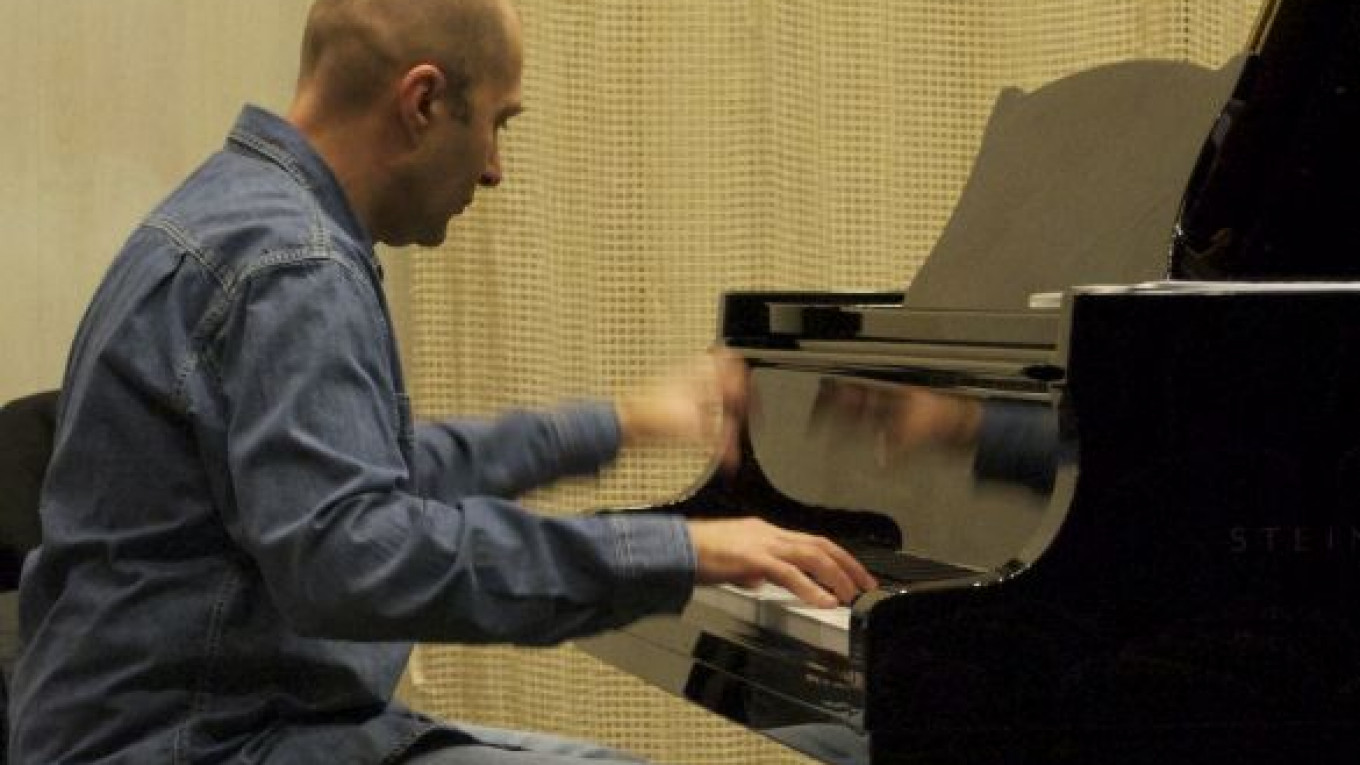When composer Anton Batagov and singer Yangchen Lhamo announced that they had made a collaborative album, most critics were understandably skeptical: Who would expect minimalist piano music to mix well with traditional Tibetan folk singing?
However, the runaway success of this album — the first production run has already sold out — is just another demonstration of Batagov's diverse talents and rejection of mainstream classical music. The composer will play his music for a Moscow audience this Sunday at the International House of Music.
"I do not know what normal work is," Batagov said in an interview with The Moscow Times earlier this week. Over the course of his career, Batagov has dabbled in many genres, and will be presenting a selection of his film soundtracks in a program called "The Magic of Cinema" this weekend in Moscow.
While Batagov was trained as a classical pianist at the Moscow Conservatory and won a prize at the International Tchaikovsky Competition in 1986, early on he rejected a traditional career in favor of a more unusual trajectory.
"I always was a radical, noncommercial artist, and film seemed rather unworthy to me, like mass art," Batagov said, describing how he happened to meet people in the film industry and began composing soundtracks, finding it to be "entirely off the rails that people usually travel upon." Batagov went on to compose music for some of Russia's largest television stations, such as RTR and NTV.
Yet Batagov did not become solely a soundtrack composer — after the collapse of the Soviet Union, Batagov became well known for propagandizing modern foreign composers in the old-fashioned Russian classical music scene. Batagov was the first to play many works by composers like Philip Glass, Steve Reich, Morton Feldman and John Cage, as well as composing his own pieces in a style frequently referred to as minimalist or post-minimalist.
At the same time as he spread foreign music in Russia, Batagov energetically toured the West playing Russian classical music. "Speaking of work as a composer, there are things that are impossible in Russia that can be done abroad, and also the reverse," Batagov said, comparing work in Russia and the West.
Overall, Batagov said that avant-garde composers and musicians playing less famous works were much better received in the West, partly due to the greater state and private funding that allowed concert halls to stage performances that attracted smaller crowds. In Russia, where musicians are paid based on ticket sales in concert venues, organizers feel more of a pressure to use big-name pieces and performers, Batagov said.
In part due to his preference for avant-garde work, Batagov has spent most of his time abroad lately, particularly in the U.S. While Batagov receives some invitations to perform in Russia, he said most of these were for larger festivals, not single concerts.
Overall, Batagov was optimistic about the state of classical music in Russia, noting that Russian musicians frequently were able to get positions in top orchestras when they went abroad. "We have a real talent for teaching music," Batagov said, while noting that musical education had declined in quality since the days of the Soviet Union when he himself studied.
Batagov noted that many students came to his recent concerts in Moscow. In October, Batagov performed as part of the citywide "Night of Music" festival. "Everyone who participated agreed that this was a very good, correct idea, and I hope that it will happen every year," Batagov said.
Batagov's performance at the Moscow Philharmonic was one of the headliner events of the night and ran out of tickets quickly, indicating that Muscovites are glad to see Batagov, a Moscow native, return to his home city. Batagov was pleasantly surprised by the audience response, noting that some of his earlier concerts in Moscow had gotten much less attention.
Batagov will now return to Russia to play "The Magic of Cinema" in Moscow and St. Petersburg, followed by a concert at Gogol Center in Moscow in December. As to more long-term plans, Batagov said little, yet from this composer it seems reasonable to expect the unexpected.
Anton Batagov will play "The Magic of Cinema" on Nov. 10 in the Chamber Hall of the Moscow International House of Music, 52 Kosmodamianskaya Naberezhnaya, Bldg. 8.
Contact the author at g.golubock@imedia.ru
A Message from The Moscow Times:
Dear readers,
We are facing unprecedented challenges. Russia's Prosecutor General's Office has designated The Moscow Times as an "undesirable" organization, criminalizing our work and putting our staff at risk of prosecution. This follows our earlier unjust labeling as a "foreign agent."
These actions are direct attempts to silence independent journalism in Russia. The authorities claim our work "discredits the decisions of the Russian leadership." We see things differently: we strive to provide accurate, unbiased reporting on Russia.
We, the journalists of The Moscow Times, refuse to be silenced. But to continue our work, we need your help.
Your support, no matter how small, makes a world of difference. If you can, please support us monthly starting from just $2. It's quick to set up, and every contribution makes a significant impact.
By supporting The Moscow Times, you're defending open, independent journalism in the face of repression. Thank you for standing with us.
Remind me later.






